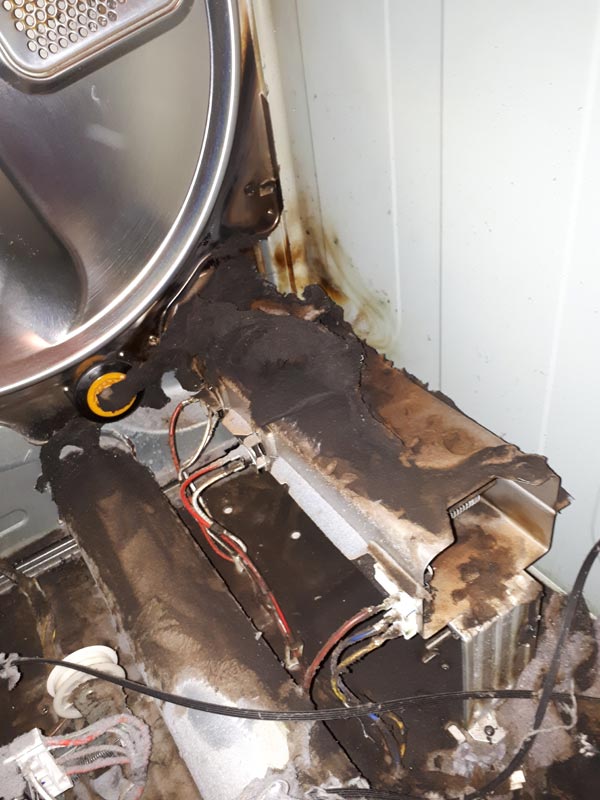About 27 percent of these dryer fires is caused by an accumulation of lint, which means that not cleaning out your dryer vent can set you up for a dangerous situation that’s far more serious than the drop in performance caused by constricting a dryer’s ductwork.
What Can Cause a Dryer Fire?
The most common cause of dryer fires is failure to do a thorough cleaning. Because a lint trap is not a foolproof method for catching all the fuzzy stuff from clothes, lint can gradually build up and catch fire in the heating element or exhaust duct. Further compounding the problem is the fact that many people now install dryers outside of their basements. This typically results in dryer vent pipes being much longer. Those longer vent pipes have a greater likelihood of being twisted and turned to accommodate the structure of the home.
Tips To Prevent Dryer Fires

Clean the Dryer Duct Annually (at Least)
If you notice that your dryer takes longer to dry laundry than it used to, that’s a clue that there may be a blockage in the dryer vent system. When you’re drying a load, go outside and look at the vent. Do you see or feel exhaust air? If not, the vent or exhaust duct may be blocked with lint. Start by disconnecting your dryer from the power source. And if you have a gas dryer, also turn off the gas valve near the dryer. Carefully slide the dryer away from the wall so that you can access the vent that’s typically in the back of the dryer, Handel says. If you have a gas dryer, take care not to overstretch or damage the gas line.
Install With Care
Be sure to follow the manufacturer’s instructions when installing the vent pipe. Use a short, straight pipe that’s an adequate distance from the wall. By reducing the bends in the dryer vent pipe, it creates fewer opportunities for lint to gather. If you have to vent your dryer over a long distance, consider investing in a dryer vent fan. These automatic electric devices speed up airflow through the duct every time you turn on your dryer to keep things moving along. A dryer vent fan should be installed by a licensed electrician.
Clean the Lint Filter
Not once a month, or even once a week: Clean the lint from the dryer’s lint screen after every load, says Richard Handel, the test engineer who oversees CR’s laundry appliance lab. This helps prevent a fire, and it also helps your laundry dry faster.

